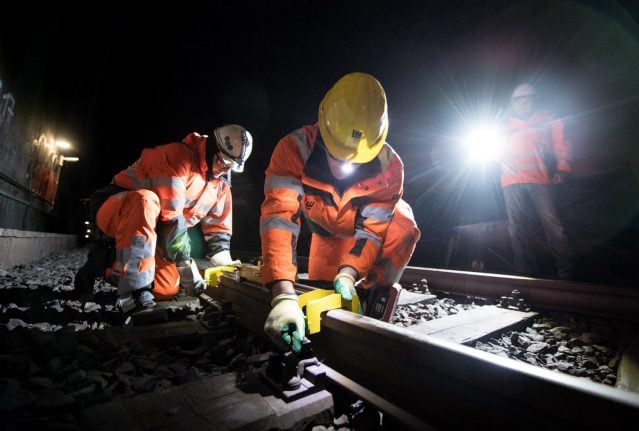Things started to get complicated for commuters in Frankfurt on Monday when Deutsche Bahn closed down the train tunnel in the inner city to lay a new electricity cable, the Frankfurter Rundschau reports.
Seven of the city’s nine S-Bahn lines have been affected by the closure, which is to last until April 9th.
Despite the fact that Deutsche Bahn announced the closure months in advance, public service union Ver.di have decided to throw fuel on the fire of the crippled transport machinery by striking on the city’s tram and U-Bahn lines on Wednesday.
Ver.di, which is calling for a six percent pay increase for public workers nationwide, said Tuesday that it would stick to the decision taken on Friday to strike for the whole day.
When Ver.di called strikes in Cologne last week, the S-Bahn proved to be a vital alternative source of transport for commuters desperate to get to work.
The S-Bahn is managed by Deutsche Bahn, whose workers negotiate pay deals with the state-owned company through their own train unions and are thus not involved in the current pay dispute.
That leaves commuters with the possibility of travelling on overcrowded buses, or on the few S-Bahn lines that have not been affected by the tunnel closure.
Frankfurter Rundschau has another alternative for commuters – rental bikes. There are a total of 2,700 bikes parked at 300 stations across the financial hub.



 Please whitelist us to continue reading.
Please whitelist us to continue reading.